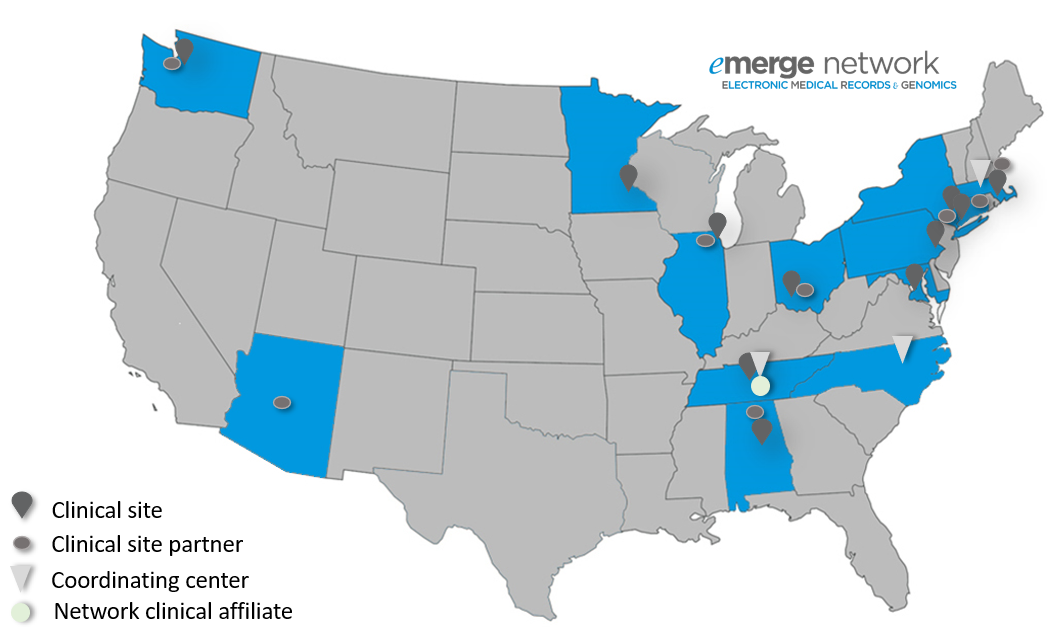eMERGE is a national network organized and funded by the
National Human Genome Research Institute (NHGRI) that combines DNA
biorepositories with electronic medical record (EMR) systems for large
scale, high-throughput genetic research in support of implementing genomic
medicine.

Many factors contribute to risk of a disease. Some of these factors are internal,
like genetics, and others are external, like where someone lives. Over the last several years
researchers have discovered that in addition to one gene being associated with a given
disease (monogenic factors), many genes across your genome can contribute to the development
of a disease (polygenic factors). To learn more about elements that contribute to risk a disease,
click here.
Latest News
NOSI: Administrative supplements to active NIH awards to support replication studies using independent contract resources (NOT-RM-24-013)
October 10, 2024 3:28 PM
2025 HuBMAP Summer Undergraduate Internship Program
October 10, 2024 2:59 PM
Education Outreach Specialist – GS-13 Position
October 10, 2024 2:57 PM
NIH Grants Process Primer: Application to Award webinar
October 10, 2024 2:52 PM
From Cohorts to Clinics: The New Landscape of Global Healthcare – PRECISE-IHCC Conference 21-23 Aug 2024
July 7, 2024 2:24 PM
NCI Seeks Input on Existing Study Populations with Multi-Cancer Detection Test Results and Available Samples for Germline Testing
July 7, 2024 2:10 PM
Recent Publications


